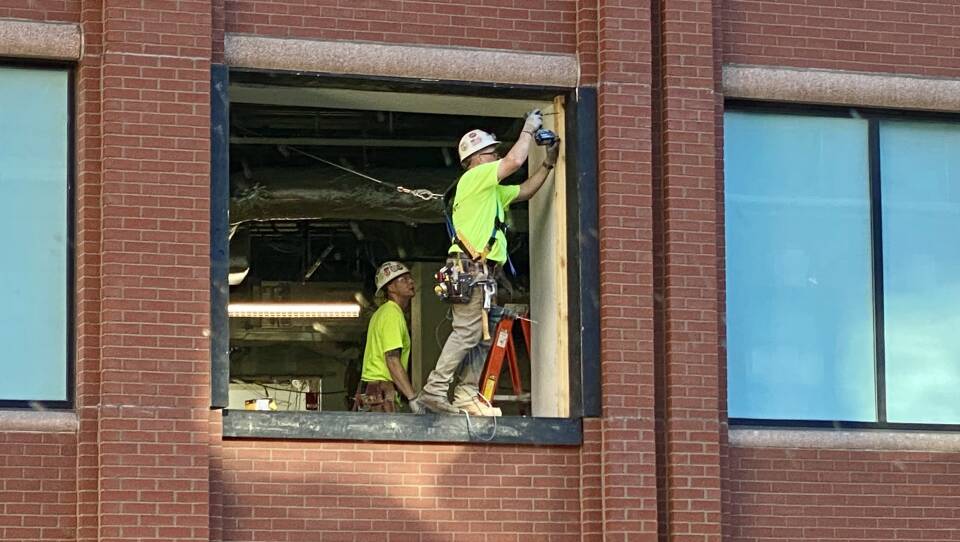The Department of Energy Resources this week recommended that the state continue a pilot project that allows 10 towns to require new buildings and major renovations to be fossil fuel-free, reporting that early data show new construction is more energy-efficient in participating towns.
A 2022 state climate law allowed DOER to select 10 towns that since last year have been allowed to restrict fossil fuels in the building sector, which is responsible for about 35 percent of greenhouse gas emissions in Massachusetts. Across the eight towns that had ordinances in place in 2024, 169 projects were permitted with 20 completed, DOER said in a report that was due to the Legislature this week.
The agency reported that, of the completed projects, “the median Home Energy Rating System (HERS) scores are 43 and 47 for pilot and control communities respectively.” A HERS score is a measure of energy efficiency, with lower scores representing more efficient buildings.
The state’s Stretch Energy Code mandates that new homes achieve a HERS score of 42 or less (for homes with fossil fuels) or 45 or less (all-electric homes), while maximum HERS scores for major renovation projects can range from 65 to 75, DOER said. A truly net-zero building would have a HERS score of 0.
The participating municipalities are Acton, Arlington, Aquinnah, Brookline, Cambridge, Concord, Lincoln, Lexington, Newton and Northampton. Newton and Northampton’s ordinances were in not effect in 2024, DOER said, and Concord issued one waiver from its ordinance.
The department identified a group of communities with demographic, geographic and development similarities to the participating towns, meant as a control group. That cohort includes Amherst, Bedford, Carlisle, Medford, Watertown and West Tisbury, but only Bedford and Carlisle overcame “difficulties pulling together the required building permit information” to provide data for DOER’s first report.
DOER’s report on the pilot project did not include further assessment of the program and its impact. DOER said other things called for in the law, like an analysis of the net reduction in emissions realized by the pilot program communities, remain under review. The law also called for analysis of the program’s impacts (if any) on housing production, housing affordability, electric bills, heating bills, and other operating costs with a focus on low- and moderate-income residents.
The department said it had not received any actual energy usage data from utilities by the time it submitted its report (the law calls for utilities to have submitted it by Sept. 30, 2024), but expects to get it soon. It said data on electricity costs and housing affordability “are not yet available” and added that “the reported cost of construction per square foot in pilot communities was inconsistent” in 2024.
But DOER did recommend that the state keep the pilot going to “enable DOER to conduct a comprehensive evaluation of its impact and potential policy implications.”




